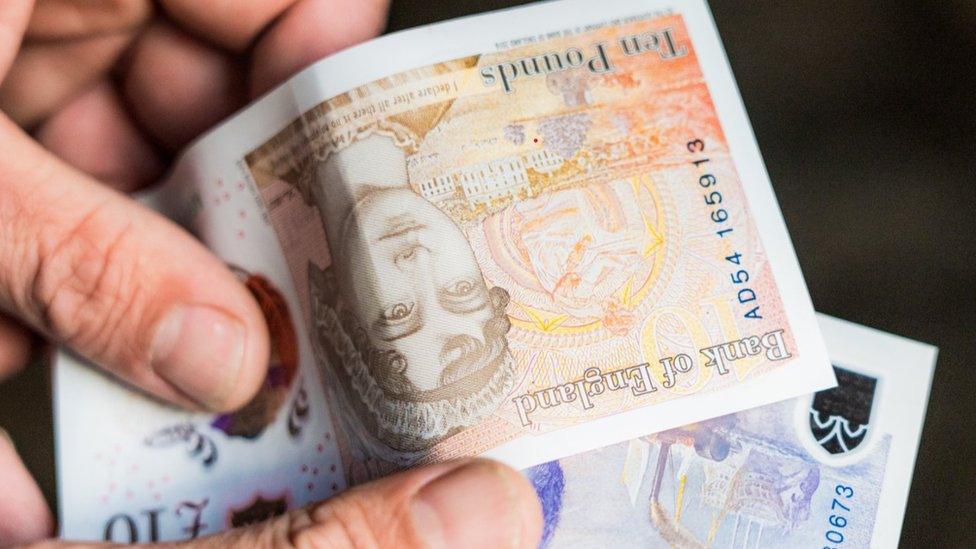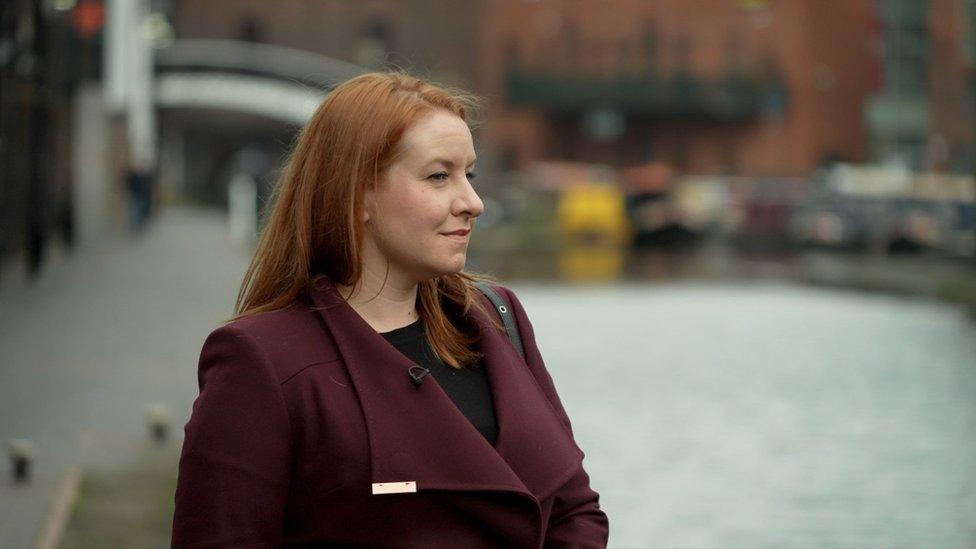Universal credit fraud and error at new high
- Published

Fraud and error on the main universal credit benefit have reached record levels, according to new official figures.
According to the Department for Work and Pensions (DWP), £8.4bn was lost in 2020-21, up from £4.6bn the previous year.
Officials say the rise is almost entirely due to fraud.
The number of people on universal credit has doubled to six million since the start of the pandemic.
Officials say the increase in universal credit fraud is a product of more people applying for the benefit, and the value of each fraudulent case rising, rather than a higher proportion of people engaging in fraud.
The overall level of fraud and error across the benefits system increased by almost two-thirds, from 2.4% last year to 3.9%, the highest ever reported rate.
The fraud rate on the main benefit, universal credit, has increased by more than 50% over the past year, and now stands at 14.5%.
Rules relaxed
The DWP says the vast majority of claims are genuine and the benefit provides a vital safety net for people in need.
Fraud can be as simple as individuals claiming money to which they are not entitled, for example by not declaring income from other sources.
More complex cases involve criminal gangs stealing people's details to apply for advance payments of universal credit.
The money is paid to them but the person whose identity has been stolen gets the bill.
As Covid-19 hit the UK last spring and the economy was effectively mothballed, the sheer demand for universal credit in March and April led the government to relax some welfare rules, which allowed criminal gangs to target the benefit and steal as much as £1.5bn.
Identity checks were processed online, for instance, rather than face-to-face and some information was taken on trust, such as the cost of rent.

Jo's story
It was not until a letter from the DWP dropped through her door last November, demanding repayment of a £1,475.52 universal credit advance, that Jo Darby, 37, realised she had a problem.
Ms Darby, from Birmingham, had been working full-time throughout the pandemic and had never claimed benefits, let alone an advance, so she immediately assumed fraud.

Fraudster's stole Jo Darby's details to claim a benefit advance, leaving her with the bill
But convincing the DWP proved difficult - there was no reply on the helpline number on the letter and when the fraud team eventually called back, they refused to talk to her because she was unable to verify the security questions on the scam universal credit account.
Two weeks later Ms Darby's employer told her they had been instructed to deduct money from her salary.
"I felt like I was going round in circles and had no control," she told the BBC.
"They hadn't taken on my concerns regarding the fraud and they'd already started to recover that debt without fully investigating the situation."
It took the intervention of BBC Radio 4's Money Box programme to resolve the situation.
Ms Darby later discovered the original fraud actually happened in June.
"For all that time, someone was pretending to be me and there were no significant checks in place," she says.

Other factors in 2020 include confusion among many new claimants, who applied for both universal credit and the government's Self Employment Income Support Scheme - income from the scheme can mean claimants should receive less universal credit.
Officials also say pre-pandemic concerns that the rules around declaring capital and savings are complex and driving high levels of fraud and error have not been addressed and are becoming more acute as the number of people claiming universal credit rockets.
'Unprecedented year'
Reacting to the figures, a DWP official said "following an unprecedented year... fraud and error in the benefits system remains low with 95% of benefits worth more than £200bn paid correctly.
"We take any abuse of taxpayers' money very seriously and those who claim benefits they are untitled to will face criminal prosecution.
"We also have robust plans in place to recover fraudulent claims and drive fraud and error down to the lowest feasible level."

Have you been a victim of universal credit fraud? Share your experiences by emailing haveyoursay@bbc.co.uk, external.
Please include a contact number if you are willing to speak to a BBC journalist. You can also get in touch in the following ways:
WhatsApp: +44 7756 165803
Tweet: @BBC_HaveYourSay, external
Please read our terms & conditions and privacy policy
If you are reading this page and can't see the form you will need to visit the mobile version of the BBC website to submit your question or comment or you can email us at HaveYourSay@bbc.co.uk, external. Please include your name, age and location with any submission.